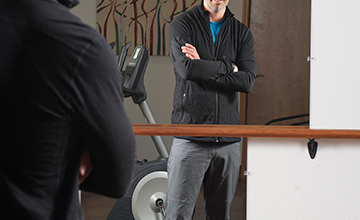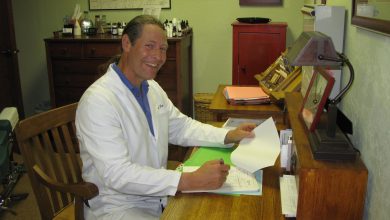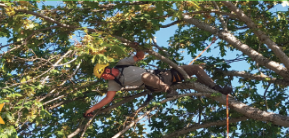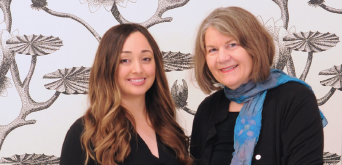Ariella St. Clair – St. Clair Productions
 For the past 17 years Ariella St. Clair has brought a series of live music concerts to Ashland. Ariella’s own appreciation for music began in Greenwich Village in the early 1960s when she would travel into the city with her friends to play and listen to music. She has hosted an eclectic variety of shows here in Ashland ranging from Celtic to Tuvan Throat Singers and bluegrass to blues. This year, St. Clair productions takes the stage again with the 18th Annual Eclectic Music and More Series and I spoke with Ariella to get the inside scoop.
For the past 17 years Ariella St. Clair has brought a series of live music concerts to Ashland. Ariella’s own appreciation for music began in Greenwich Village in the early 1960s when she would travel into the city with her friends to play and listen to music. She has hosted an eclectic variety of shows here in Ashland ranging from Celtic to Tuvan Throat Singers and bluegrass to blues. This year, St. Clair productions takes the stage again with the 18th Annual Eclectic Music and More Series and I spoke with Ariella to get the inside scoop.
Ariella, thanks for speaking with us today. Tell us about what you have in store for us this coming season.
Our 18th Annual Eclectic Music and More series actually began on September 20 with the Uilleann Piper Paddy Keenan. There are, however, 14 more concerts that take place October through May. First up in October is the singer/songwriter Christine Lavin on Saturday, October 19. This is the second time St. Clair Productions has produced a show with Lavin. One thing that makes a Lavin show special is no two shows are ever alike as each show is customized for the people who show up. She’s definitely left-of-center politically but she puts everything in perspective through her humorous songs and stories and through her heart-touching songs. One other unique aspect to her shows is that ticket holders are invited to knit with Lavin beginning at 7 p.m. Dubbed “The Phantom Monk of Folk-Blues,” our second performer In October is Kelly Joe Phelps on Saturday, October 26. Phelps is noted for his slide guitar work and his introspective song writing. It’s been many years since we’ve produced a show with Phelps. I would describe Phelps as being quite the opposite of Lavin. He keeps his banter between songs to a minimum but wows the crowd with his music. Phelps is touring in support of his blues/gospel CD Brother Sinner and the Whale. The Georgia Straight said of the CD, “The story it tells is as powerful as the great gospel songs of Blind Willie Johnson or the Staple Singers – songs that transcend their religious content to speak directly to the human soul.” Come “Journey to the Soul of Africa” with a multi-media presentation presented by Samite on Friday, November 8. Originally from Uganda and forced to flee as a political refugee, Samite sings traditional music from the many lands of Africa accompanied by kalimbas, other native instruments and the Western flute. In 2002, Samite founded Musicians for World Harmony, an organization dedicated to enabling musicians throughout the world to share their music to promote peace, understanding, and harmony among people. Samite will lead a workshop on African singing on Saturday, November 9, 10 a.m.-noon.
Next it’s not so traditional bluegrass with Hot Buttered Rum on Wednesday, November 20. Want to know what to expect at a Hot Buttered Rum show? Go to their website www.hotbutteredrum.net and check out the video of the group singing the National Anthem arranged as a bluegrass piece at the Giants Game on August 25.
This season we’re presenting two amazing banjoists. The first one, who is also known for his slide guitar and songwriting, is Tony Furtado. Furtado’s show is Friday, December 6. This will be Furtado’s second time performing for St. Clair Productions. He says he’s bringing a band this time. Furtado is gregarious, engaging and entertaining, on and off stage. He’s been called a genius on banjo and slide guitar and his own creative interpretation hybrid of Americana and indie rock is captivating. Also a sculptor, Furtado will exhibit his work at Illahe Gallery, 4th and B Streets, from 5-8 p.m. for First Friday Art Walk. Our January show features Jennifer Berezin on Saturday, January 11. Berezin is a unique blend of singer/ songwriter, producer, and activist. Her lifelong involvement in environmental, women’s and other justice movements, as well as an interest in Buddhism and earth-based spirituality, is at the heart of her writing. In 2011, Berezin released In These Arms, A Song for All Beings, a long playing musical meditation. Berezan traveled to Korea to record 250 Buddhist nuns from Un-munsa monastery. Their chanting is interwoven with voices from around the world. In 2012, she released Home, using a collection of esteemed musical friends and theme that touch on home as everywhere. Every two or three years we love bringing back Celtic harpist and storyteller Patrick Ball as he always comes with a new show. For a second time he is presenting “Legends of the Celtic Harp” with harpists Lisa Lynne and Aryeh Frankfurter. The show is a joyous, dramatic musical journey deep into the myths, legends and history of the Celtic Harp. The show takes place on Saturday, February 1. Our second amazing banjoist is Bill Evans presenting “The Banjo in America” on Friday, February 7. Evans is well known within the bluegrass music community not only as a musician, but also as a teacher, writer and scholar. Tracing the banjo from its West African roots to the New World, Evans performs musical examples from the 1700’s to the present day on a variety of vintage instruments, explaining how the banjo has been at the intersection of African- and Anglo-American musical and cultural exchange for over 250 years.
Someone we’ve presented several times and always to a sell-out crowd is Holly Near. Near returns on Saturday, February 15 with her Peace Becomes You Band. Respected around the world for her music and activism, her joy and passion inspire people to join in her celebration of the human spirit. Throughout her career, Near has garnered many honors. Notable among them are a nomination for the Nobel Peace Prize as one of the “1000 Women for Peace,” Ms. Magazine’s Woman of the Year award, The Legends of Women’s Music Award, and a Freedom of Information award from the American Civil Liberties Union of Southern California. Thursday, March 6, St. Clair Productions presents John Gorka with Antje Duvekot opening. The New York Times said, “Listening to John Gorka sing, one can get goose bumps all over. There are many reasons: fresh lyrics, a stunning emotional baritone and his twisted humor.” Duvekot holds three top songwriting awards: the Kerrville New Folk Competitions Best New Folk Award, Boston Music Award for Outstanding Folk Act and Grand Prize in the John Lennon Songwriting Contest. Keeping with our goal of diversity of styles, each season we try to present one Native American show. This season we are honored to present R. Carlos Nakai considered the world’s premier performer of the Native American flute and a major force in popularizing Native American music among a wider audience. Will Clipman accompanies him on percussion from around the world. Their show is on Friday, March 28. While well grounded in the traditional uses of the flute, Nakai has explored new musical settings including new age, world-beat, jazz and classical. Clipman is a six-time GRAMMY® Nominee, a three-time Native American Music Award Winner, a Canadian Aboriginal Music Award Winner, and a New Age Reporter Music Award Winner.
We have been trying to get our next performer back here for a long time. Finally, we found a date that worked. David Roth performs on Saturday, April 12. Roth strikes many chords, hearts, and minds with his unique songs, offbeat observations, moving stories, sense of the hilarious and powerful singing and subject matter. His songs (“Rising in Love”, “Earth”, “Manuel Garcia”, “May the Light of Love”, “Nine Gold Medals”, “Spacesuits”, “Rocket Science”, and many more) have found their way to Carnegie Hall, the United Nations, several Chicken Soup for the Soul books, NASA’s Goddard Space Center, the classic folk song book “Rise Up Singing”, and 10 CDs on the Wind River and Stockfisch (Germany) labels. We call our series Eclectic Music and More because we occasionally produce a show that’s not music. One performer we have had many times is comedian Swami Beyondananda. He’s calling his show on Saturday, April 26 “Swami Beyonananda and Beyond: A Two-Man One-Man Show.” He says, “If you’ve seen Swami Beyondananda before, here is a chance to see him again … and to go “beyond Beyondananda” to meet the man behind the Swami, Steve Bhaerman. You’ll laugh … you’ll learn … you’ll laugh … and you’ll laugh some more. Not only will you experience the Swami in his most natural habitat – offering questionable answers to answerable questions – you’ll get a look behind the scenes at the “innards” of cosmic comic distinctions, and discover the “aha” in the wake of the “ha-ha.” You’ll hear Steve’s “laugh story” — and discover how it parallels your own journey to Fool Realization and Cosmic Comic Consciousness.” Then finally we come to our final show of the season – An Evening of Bluegrass with Laurie Lewis and Tom Rozum and Robin and Linda Williams on Friday, May 9. Lewis and Rozum have performed in the area many times. However, it’s been a long time since the Williams have been here, the last time with Garrison Keeler at Britt Festival. Although each couple is coming as a duo and not with a band, the evening should turn out to be quite exciting as they are all good friends and will possibly all play together on several numbers.
Where are the shows normally hosted?
Ashland has no good mid-size venues except churches. Therefore, for almost all of our shows for the last 17 years we’ve used the Unitarian Fellowship, 87 4th St., which holds 300 people. For our 18th season, all but one show will be at the Unitarian Fellowship. Kelly Joe Phelps will be at Havurah Shir Hadash, 185 N. Mountain, as the Fellowship was not available that night. Doors open at 7 p.m. and shows start at 8 p.m.
 How do you go about choosing the musicians you bring to Ashland?
How do you go about choosing the musicians you bring to Ashland?
There are many ways I choose musicians. Because St. Clair Productions has been producing shows for so long, we get requests from booking agents. Sometimes this is a specific act that is touring our way or it’s a monthly update e-mail. I’ll then check out the musicians’ websites to see if I like their music. If I like their music but am unfamiliar with their name, I’ll check the Jefferson Public Radio play list to see if they are getting airplay. If they’re not, I won’t book them as the chances of getting enough people to see them is slim. Exceptions are musicians who play ethnic music as world music is seldom played on JPR anymore. St. Clair Productions is a member of a national organization called Folk Alliance. Each year, the organization puts on a booking conference where musicians perform 20-minute sets in hopes of getting venues to produce a show. I’ve found several acts at both the national conference and at the Far West regional conference. Another way I’ve found musicians is through suggestions from people who have attended a concert and who receive our e-mail updates. Sometimes I’ll hear some music, find out who the performer is, find his or her website and then I’ll initiate contact. I discovered Jennifer Berezin when her music was played at Diane Horbacewicz’s Ecstatic Dance one Sunday morning. I loved it, so I called her and she said yes to performing here.
Who have been some of the most memorable musicians you have hosted over the years and are there any special stories you might like to share?
The most unique musician, because of his age, that I produced was Bill Tapia. He played swing jazz on the ukulele and was 101 when he performed here. His niece, who lives in Ashland, called me and asked me to produce a concert with him. My initial reaction was pretty negative. Because Aireene Espiritu, who performed at the Rogue Valley Blues Festival and did a blues number on the ukulele, dedicated a song to Bill, I decided to give Bill Tapia’s website a look. Then I booked him, not once but again 6 months later. He did his concert and gave a workshop both times. At 101, he could still play amazingly well and he even sang on a few tunes. Tapia lives in Los Angeles and both times did a 5-city tour. He brought a guitarist and bassist with him both times and a jazz singer the second time. Bill passed away at 103. Other musicians I’ve produced have died, and I’m so glad I had the chance of bringing them to Ashland. Mike Seeger (Pete Seeger’s brother) and Utah Philips were folk music legends. Debbie Freedman’s arrangements transformed Jewish liturgical music. Odetta, often referred to as “The Voice of the Civil Rights Movement,” began performing and breaking down color barriers in the early 50s. Her concert was probably the most memorable of those musicians who have since passed away. Odetta was in her late 70s when she performed at the Rogue Valley Blues Festival in 2007. Her performance was so powerful even though she was too sick to get out of her wheel chair that I had to get on stage to tell people to come see her the next day at her workshop to get them to leave. I’ve also produced shows with two musicians that I can say “I knew them when.” Both were still teenagers when I first produced them. The first is David Jacob-Strain, who was 17 when he first performed in Ashland. He’s now 29 and tours all over the US and Europe. The second is Ben Rice, who as a teenager performed with his blues band at the Rogue Valley Blues Festival many times. He and his current band perform at venues throughout the Northwest, especially blues festivals.
 What are the elements that come together in creating a great show?
What are the elements that come together in creating a great show?
Obviously, really professional musicians who know how to entertain are a necessity. If someone comes to a St. Clair Productions show, he or she might leave not liking the type of music but they never leave saying the musicians were less than superb. Second, a really good sound person is needed. Tom Frederick’s Cabin Fever Sound has been my sound person for almost the entire time I’ve been producing shows. He knows acoustic music having been the sound person for the Green Show for many years. Like me, he doesn’t think making the music louder makes it sound better. Third element is having welcoming, attentive volunteers. Volunteers sell tickets, take tickets at the door, sell refreshments and CDs and this year will sell raffle tickets for a guitar donated by Martin Guitar and arrange by Cripple Creek Music. Lastly, an audience that really appreciates the music helps create a great show. Musicians feed off the energy of the audience. My experience is that the more the audience is into the music, the better the musicians perform. Really good performers have a set list but then can customize depending on how the audience is reacting.
What was the first show you ever hosted?
I first got the production bug in the 1970s in Kansas City when I was part of a collective of about 60 people called The Foolkiller. We owned a small theater and each weekend produced a one-act play and touring folk musicians. After the show, someone would host a party and we’d jam with the musicians until the wee hours of the morning. Next I hosted a once-a-week coffee house at a vegetarian restaurant in Lawrence, KS. Have been doing some kind of concert production ever since. In Ashland, my first production was Maria Muldaur at the Historic Ashland Armory in 1995. I held four shows at the Armory before being asked to produce shows for the Ashland Folk Music Club. When that organization decided to only produce contra dances, I took over the concert series.
Who have been some of your biggest name performers and how did you get them to come to Ashland?
Last season had two of the biggest name performers I have produced –Peter Yarrow from Peter, Paul and Mary and Janis Ian. Most of the other “big name” performers are popular in a niche segment of the music industry. In Women’s Music, I’ve produced Holly Near and Cris Williamson. In Hawaiian Slack Key, I’ve produced Keola Beamer. Native American acts include Mary Youngblood and Joanne Shenandoah. Singer songwriters include Patty Larkin, Cheryl Wheeler, and Tom Paxton. Celtic performers include Alistair Frasier and Battlefield Band. Blues performers are Chris Smither and The Holmes Brothers. It’s easy to get performers to come to Ashland. Offer enough money and a place to stay and they come, especially if they already are on tour in California and Oregon. The trick is getting people in the area to know that they are coming. To fill the venue, I utilize newspaper ads and articles, underwriting spots on JPR, social media, on-line calendars and my own e-mail list.
 Often times musicians coming to Ashland have also have given free performances at local schools. Can you tell us about this aspect of St. Clair Productions?
Often times musicians coming to Ashland have also have given free performances at local schools. Can you tell us about this aspect of St. Clair Productions?
For several years St. Clair Productions has received TourWest grants from the Western States Arts Federation to help fund two concerts a season. The criteria for the grants are: the musicians must be from out-of-state; they must do a public concert; and they must do out-reach activities such as a public workshop and school presentation. The John Muir School is where we usually set-up these school presentations as they love outside musicians to come inspire the students who all play instruments. Last season, Peter Yarrow did two school presentations instead of a public workshop. He performed at John Muir School and Willow Wind and based his presentation on the anti-bullying curriculum that he’s established.
Is there a specific musical genre that you tend to focus on?
I focus on folk music in its many forms: blues, bluegrass, traditional, singer/songwriter, and music from around the world.
Tell us more about your actual concerts. I understand they are all age shows.
Our concerts are in a theater setting. It’s sit-down, though people are welcome to dance in the back or along the sides when there’s a high energy band. We ask people to not talk. Because there’s no alcohol, the shows are family-friendly, though we ask parents to supervise their kids and keep them sitting quietly. Teens 12-17 always get in for $10 and 11 and under are free. Adult prices vary from $18-25 in advance and a little more at the door.
For many years you hosted the Rogue Valley Blues Festival can you please tell us more about this?
We produced the Rogue Valley Blues Festival from 2001-2010 during Martin Luther King Jr. holiday weekend in January. We picked that time because there were no other activities to bring tourists to Ashland. Friday evening was acoustic blues, Saturday evening was the dance and Sunday evening was teen bands. During the day on Saturday and Sunday were workshops and free performances by local musicians in area restaurants. For the first several years, the festival was mildly successful and people traveled from Portland to Redding to attend. In 2009 and 2010, attendance was way down, probably hurt by the recession.
We made the decision to end the blues festival and concentrate on just the concert series.
Ariella, you are writing a monthly column in the LocalsGuide. How will you be using your column to keep the audience up-to-date with St. Clair Productions?
All of the musicians I bring to Ashland are well-known among some people and unknown by many. I don’t need to sell Christine Lavin and Kelly Joe Phelps, our October musicians, to their fans. I do need to sell Christine Lavin and Kelly Joe Phelps to people who have never heard of them. I will be using my monthly column to give readers tidbits of information on acts so that they will say, “Wow, I’ve got to see that act for myself.”
How does one go about getting tickets for an upcoming show?
There are three ways to purchase tickets: on-line at www.stclairevents.com, by sending a check and self-addressed envelope to St. Clair Productions, PO Box 835, Ashland, OR 97520, or at the Music Coop in downtown Ashland one month before each show.
Learn More:
PO Box 835, Ashland, OR 97520
astclair@mind.net
541-535-3562
www.stclairevents.com




